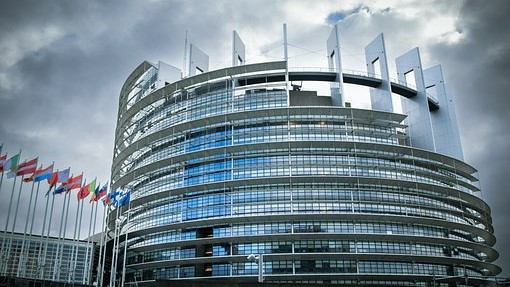Cycling stakeholders are making the case for an ambitious and comprehensive EU-level strategy to double the number of kilometres cycled in Europe by 2030 and incentivise the re-shoring of production facilities to build a more resilient and sustainable European cycling industry. Their calls are joined by several European governments and key members of the European Parliament.
Cycling organisations’ joined voices at the European parliament in Brussels on Monday 7 November to call on the EU Institutions to rapidly adopt a EU Cycling Strategy that:
Aims to double the number of kilometres cycled by people in Europe
Recognises cycling as a priority mode of transport and mobility industry
Supports a competitive, resilient, sustainable cycling industry
Recognizes the need to bridge an investment gap for infrastructure and industrial transition, backed by regulatory and trade stability to give a basis for investment confidence.
Supports the local and regional structures needed to retain workers, invest in new technologies and make the transition to sustainable production of bikes and components.
MEP Karima Delli, as Chair of the European Parliament’s Committee on Transport and Tourism, had convened cycling organisations and was impressed their policy proposals. She urged fellow parliamentarians collaborate on an ambitious Resolution and step up pressure on the European Commission to deliver rapidly, saying, “The bicycle is a clean and forward-looking mode of transport that deserves a dedicated policy. We will lift the brakes on the use of the bicycle.”
A packed political agenda is however shaking up the timetable for the European Parliament’s Resolution, which was initially announced for December 2022 but is now more likely to be finalised in January 2023.
Alongside the European Parliament’s work, several developments in the EU Member States also point at the need for the European Commission to develop an overall vision for the growth of cycling.
An initial call by the mobility ministers of the Benelux countries to prioritise cycling in European climate and transport policy and build a comprehensive EU-level cycling strategy is gathering support among other countries, with transport ministers from Austria, Denmark and Ireland recently signing up. France is meanwhile drawing up its own strategy which could in offer a blueprint for future EU action and policies, integrating a strong industrial dimension to back the growth of cycling use and investments in infrastructure.
Despite a resolute ambition to tackle the climate crisis and lead the green industrial transition, the European Commission appears to be dragging its feet to match decarbonisation objectives with an effective strategy to exploit the full environmental and industrial potential of cycling. With clear evidence and calls for action from across Europe, there is a growing case to ask why a European Cycling Strategy has not yet been presented by the EU’s policy initiator rather than why it is necessary.
Share on Linkedin Share on Facebook Share on Twitter Subscribe to our newsletter